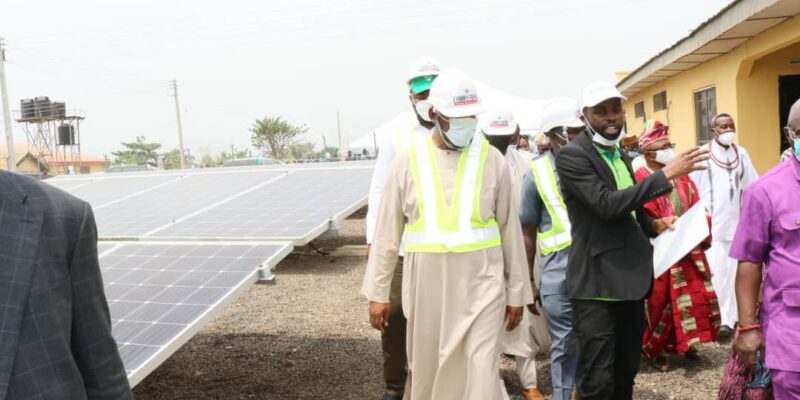Nigeria's Rural Electrification Agency (REA) has just commissioned a solar hybrid mini-grid in Adebayo locality, located in Edo State. The installation was built by the Nigerian company Fanny Frank Global Resources.
The Rural Electrification Agency (REA) continues to implement the Nigeria Rural Electrification Project (NEP). The REA visited the locality of Adebayo, in Edo State, to commission a 100 kWp solar hybrid mini-grid. The new facility, which sits in the village square, was built and commissioned by Fanny Frank Global Resources.
The small solar power plant and its battery storage system were built under the first tender of Nigeria’s Rural Electrification Fund (REF). This fund was set up by REA to accelerate the electrification of rural Nigeria. The REF finances off-grid projects based on hybrid solar, run-of-river hydro, wind and biomass.
The Adebayo Solar Hybrid Mini-Grid “has been designed and built to meet the energy needs and improve the socio-economic status of Adebayo, a community engaged in commercial activities such as petty trade, sewing, milling, hairdressing and furniture,” says REA. The government agency estimates that the new facilities will provide electricity to 500 households in the village.
The mini-grid is being commissioned at a time when Nigeria’s electrification project is in full swing, thanks in part to REA’s subsidies to suppliers of solar home systems and mini-hybrid solar grids. The aim of this large project, funded by the World Bank and the African Development Bank (AfDB), is to improve access to electricity in Nigeria. In this West African country, 55% of the population does not yet have access to electricity, 64% of whom live in rural areas, according to the United States Agency for International Development (USAID).
Jean Marie Takouleu






